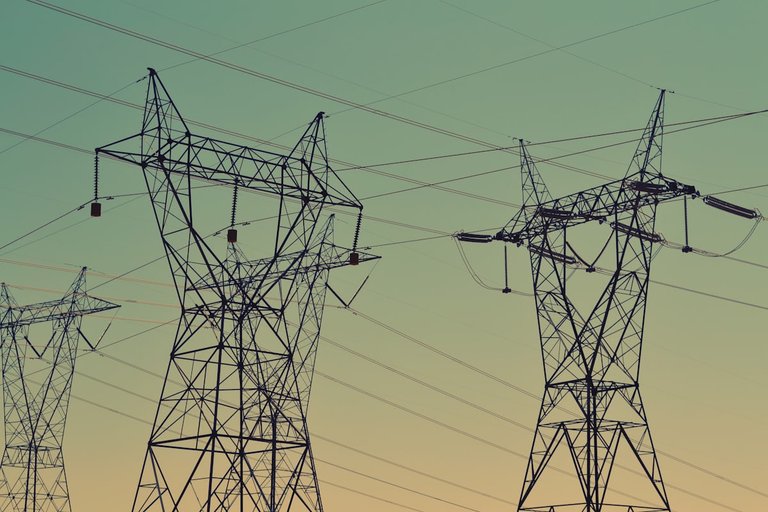ELECTRICITY SUPPLY IN MAKURDI
Electricity supply has always been one of those things that test your patience in Nigeria. We have all grown up shouting that famous phrase, “Up NEPA!” whenever the light comes back on. It doesn’t matter how old you are; the excitement that comes with seeing the bulbs light back to life and hearing your fan begin to spin never gets old. For me, it is not just about power supply, it is about the relief it brings, about knowing that for the next few hours, at least, life will be a little easier.

Source
Living in Makurdi, the Benue State capital, the story of electricity supply has been both a blessing and a curse. I remember some months back when we had what could be called steady light by Nigerian standards. The electricity wasn’t perfect, but it was fairly consistent. You could charge your phone, iron your clothes, and even run basic appliances without worrying too much. During those times, you begin to believe that maybe,just maybe, things are improving. But reality always has a way of pulling you back down.
For the past three weeks now, we have been thrown into darkness. Not a blink, not a flash, not even a faint hope of power. It has been total blackout. At first, I thought it was just a few hours of maintenance, but when it stretched into days, then into weeks, I knew this was serious. Nobody told us exactly what happened. There was no official notice, no proper communication. It is just darkness, raw darkness. And in that silence, you can hear the frustrations of everyone in the neighborhood.
This lack of electricity has affected me personally in more ways than I could have imagined. For someone like me who relies heavily on my devices to work, the impact has been devastating. My output at work has dropped because I simply cannot keep my phone or laptop charged for long. I find myself rationing battery life, switching off devices when I should be working, and constantly worrying about when the next opportunity to charge will come. Even simple things, like keeping my clothes well pressed, have become a challenge. Imagine preparing for an outing or an important meeting and realizing that your shirts are wrinkled beyond recognition because you couldn’t iron them. That feeling is draining.
And of course, the alternatives are not any better. Running a generator is expensive. The cost of fuel alone is discouraging, not to mention the noise pollution and the stress of constantly buying petrol. Sometimes, I ask myself how do people survive in a country where basic electricity is still a luxury? It’s even more painful when you remember that, despite the blackout, at the end of the month, the electricity distribution company will still bring a bill. A huge pile of money demanded for power that was never supplied.
The situation in Makurdi is not unique. I have heard stories of places where the transformer has been stolen or vandalized. Whole communities have been thrown into darkness for months or even years. In some neighborhoods, light is rationed, Street A gets power today, and Street B remains in darkness, only for the roles to be reversed the next day I've experienced this first hand. It almost feels like you are being punished for something you didn’t do. And yet, the bills keep coming, as though the darkness itself was worth paying for.
What makes the situation worse is the fact that sometimes the citizens themselves contribute to the problem. Instead of guarding and maintaining transformers, people leave them exposed, vulnerable to theft and damage. When they finally get stolen, everyone begins to wail and point fingers at the government, forgetting that we all share in the responsibility of safeguarding the little infrastructure we have.
In all of this, what hurts the most is how electricity or the lack of it dictates the rhythm of life. With steady light, businesses thrive, students can read at night, and families can enjoy some comfort. Without it, everything slows down. Productivity drops, tempers rise, and even hope begins to dim.
Living three weeks without electricity in Makurdi has taught me one thing, Nigerians are a resilient people. Despite the frustration, people still find a way to adapt. Some pool money to buy fuel for community generators. Others travel long distances to charge their phones. Neighbors help each other out when possible. It is a bitter reminder that, no matter how difficult things get, Nigerians always find a way to keep going.
Yet, resilience is not enough. We need accountability, we need better infrastructure, and we need leaders who genuinely care about providing stable electricity for everyone. Until then, the cycle continues: darkness, shouts of “Up NEPA!”, followed by another round of blackout. And here in Makurdi, I wait, like many others, for the day when electricity will no longer be a luxury but a right we can all enjoy every single day.
Posted Using INLEO
That moment you start to think things have changed only for it to go back to square 1.
Electricity in Nigeria is one of the things government needs to look into.
For real, the government has to do something about it 😞
Staying without electricity is really hard, it would really make life difficult.
I understand how it feels.
You're on point
Lack of electricity makes life hard 😞